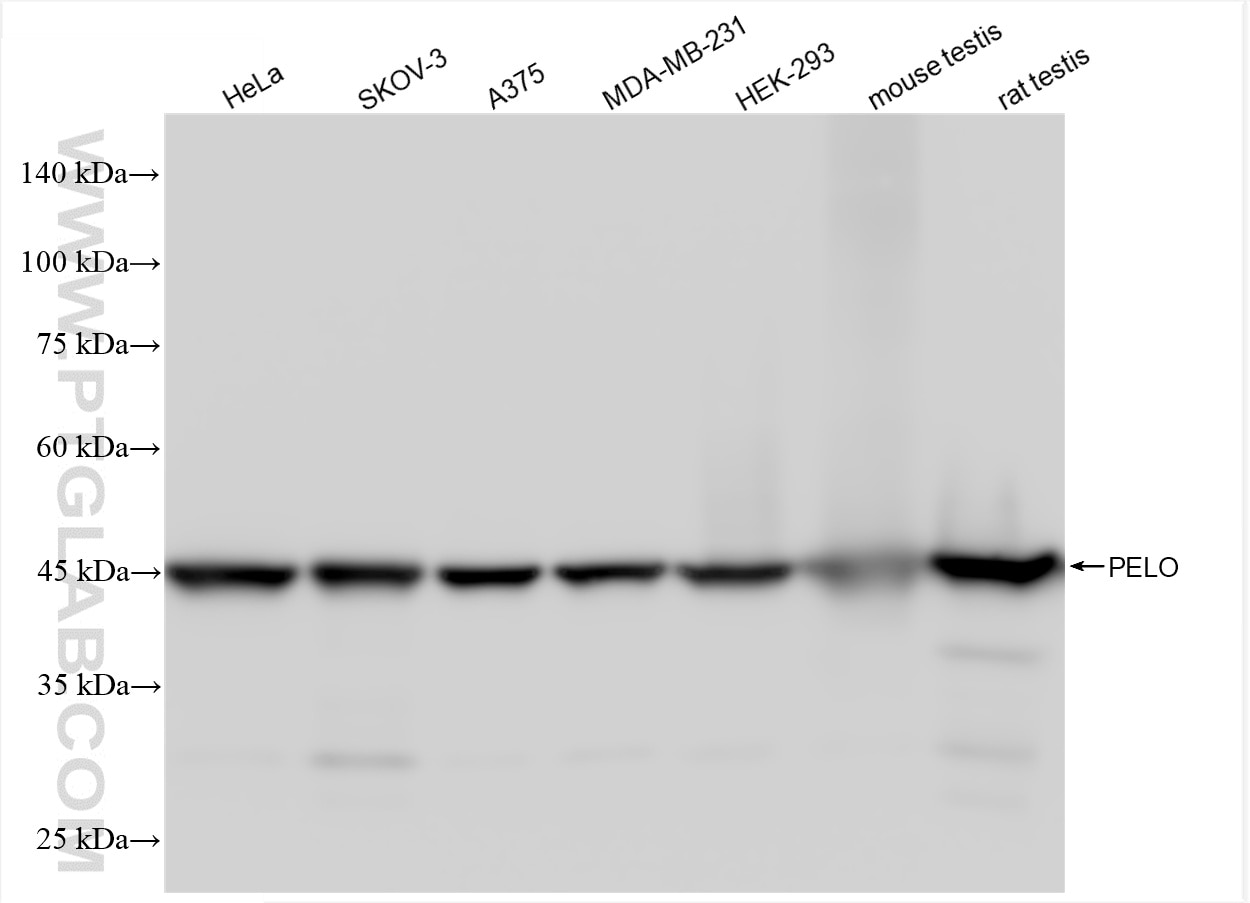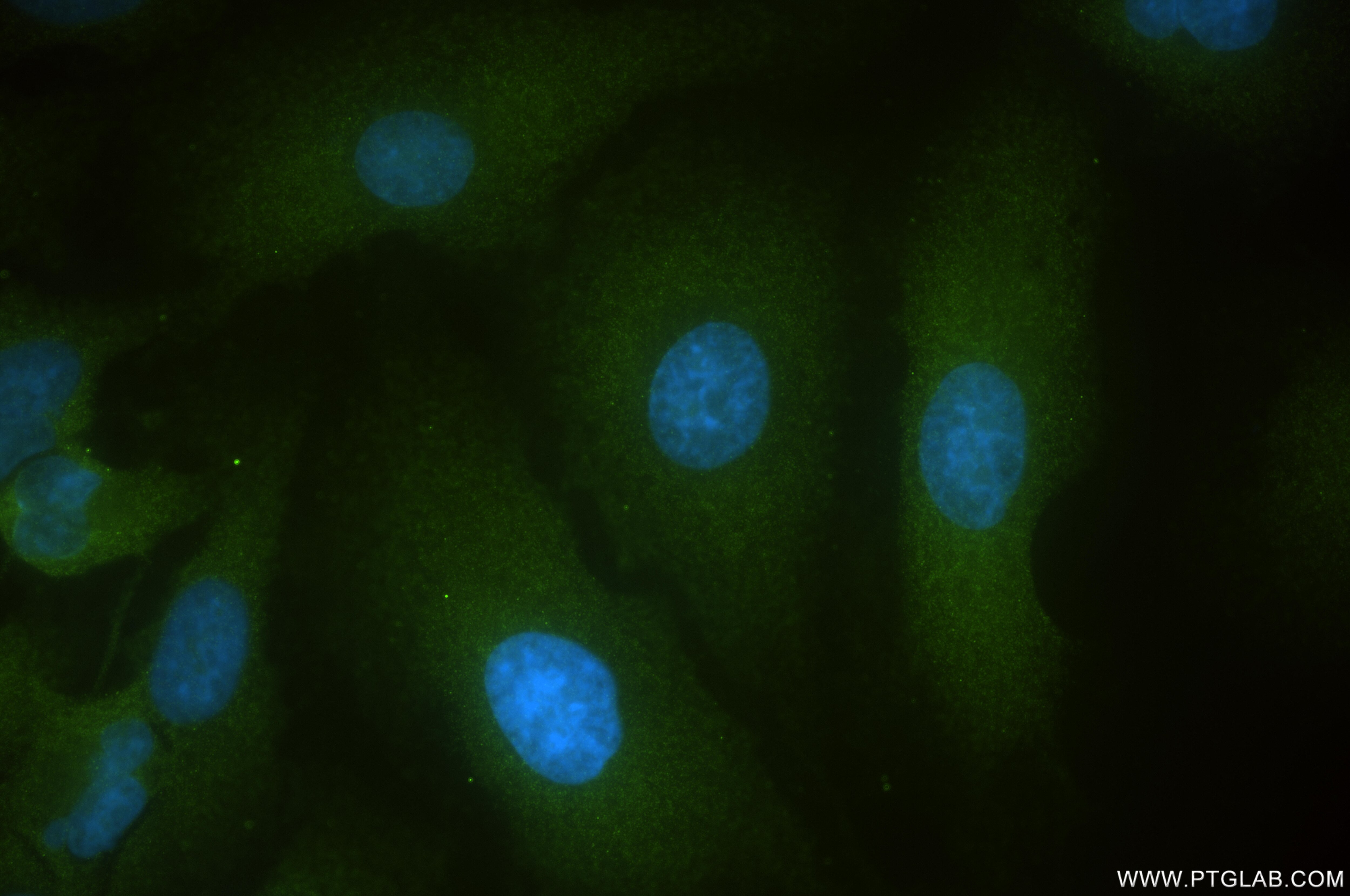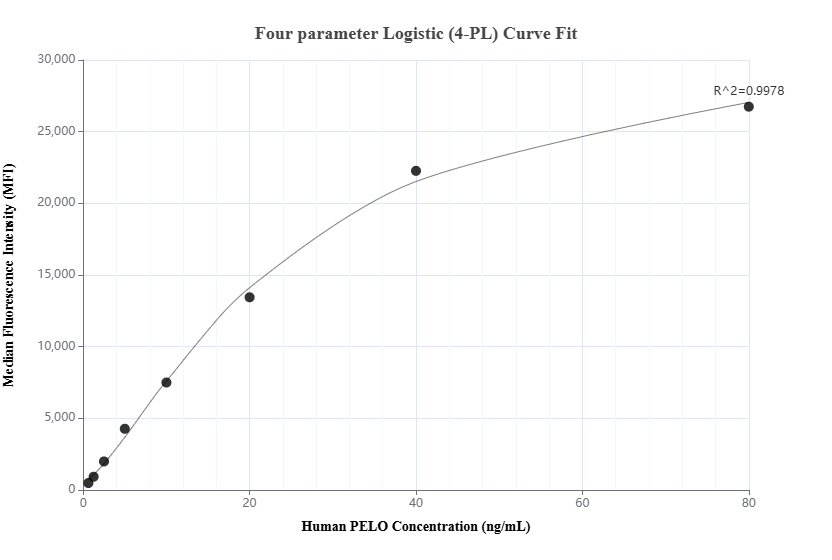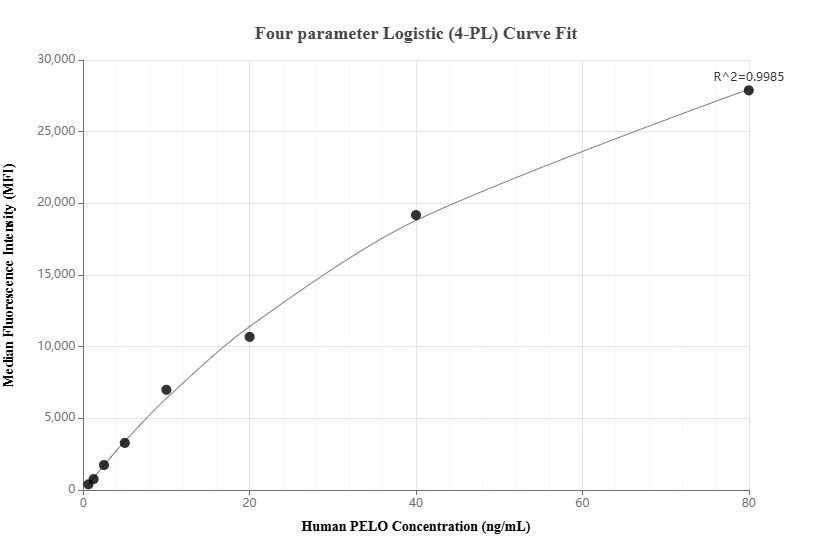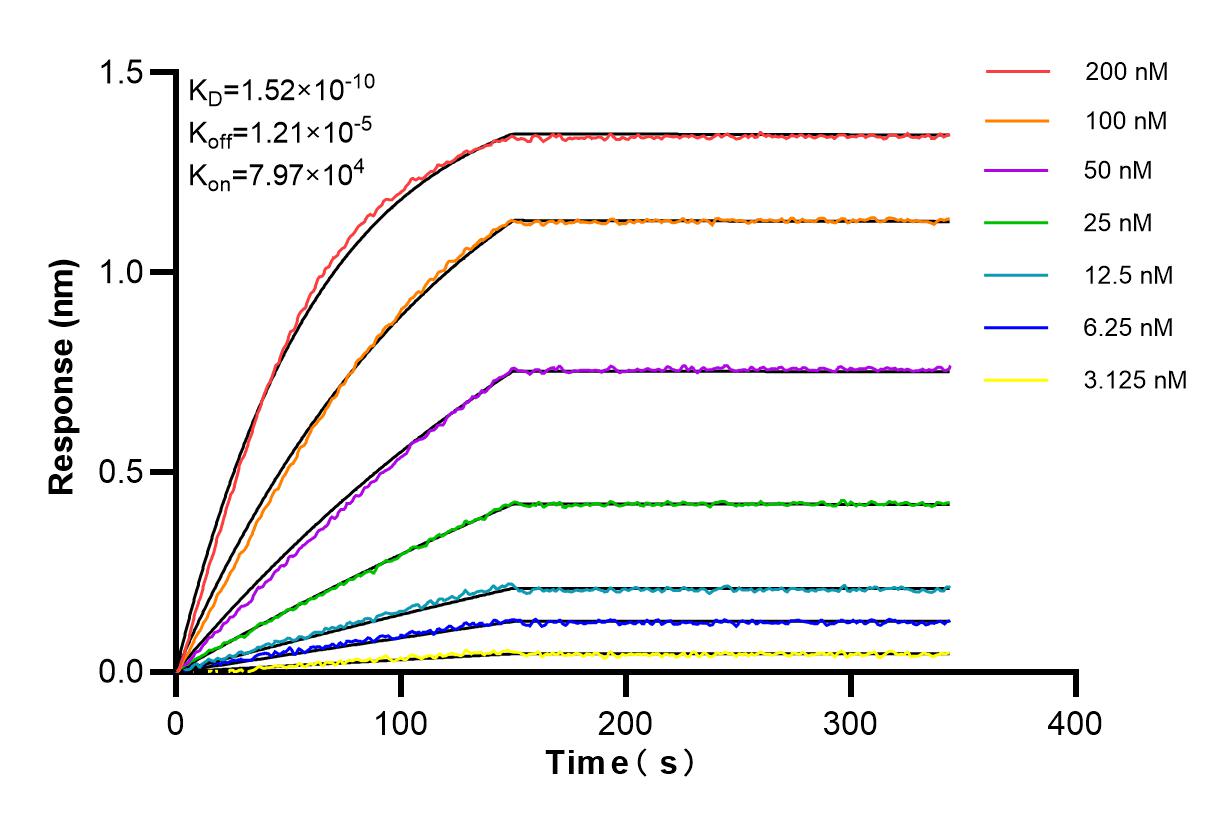Validation Data Gallery
Tested Applications
Recommended dilution
| Application | Dilution |
|---|---|
| It is recommended that this reagent should be titrated in each testing system to obtain optimal results. | |
Product Information
85743-2-PBS targets PELO as part of a matched antibody pair:
MP02111-1: 85743-1-PBS capture and 85743-2-PBS detection (validated in Cytometric bead array)
MP02111-2: 85743-3-PBS capture and 85743-2-PBS detection (validated in Cytometric bead array)
Unconjugated rabbit recombinant monoclonal antibody in PBS only (BSA and azide free) storage buffer at a concentration of 1 mg/mL, ready for conjugation. Created using Proteintech’s proprietary in-house recombinant technology. Recombinant production enables unrivalled batch-to-batch consistency, easy scale-up, and future security of supply.
This conjugation ready format makes antibodies ideal for use in many applications including: ELISAs, multiplex assays requiring matched pairs, mass cytometry, and multiplex imaging applications.Antibody use should be optimized by the end user for each application and assay.
| Tested Reactivity | human, mouse, rat |
| Host / Isotype | Rabbit / IgG |
| Class | Recombinant |
| Type | Antibody |
| Immunogen |
CatNo: Ag0873 Product name: Recombinant human PELO protein Source: e coli.-derived, PGEX-4T Tag: GST Domain: 42-384 aa of BC005889 Sequence: STIRKVQTESSTGSVGSNRVRTTLTLCVEAIDFDSQACQLRVKGTNIQENEYVKMGAYHTIELEPNRQFTLAKKQWDSVVLERIEQACDPAWSADVAAVVMQEGLAHICLVTPSMTLTRAKVEVNIPRKRKGNCSQHDRALERFYEQVVQAIQRHIHFDVVKCILVASPGFVREQFCDYMFQQAVKTDNKLLLENRSKFLQVHASSGHKYSLKEALCDPTVASRLSDTKAAGEVKALDDFYKMLQHEPDRAFYGLKQVEKANEAMAIDTLLISDELFRHQDVATRSRYVRLVDSVKENAGTVRIFSSLHVSGEQLSQLTGVAAILRFPVPELSDQEGDSSSEE 相同性解析による交差性が予測される生物種 |
| Full Name | pelota homolog (Drosophila) |
| Calculated molecular weight | 43 kDa |
| Observed molecular weight | 43-45 kDa |
| GenBank accession number | BC005889 |
| Gene Symbol | PELO |
| Gene ID (NCBI) | 53918 |
| Conjugate | Unconjugated |
| Form | |
| Form | Liquid |
| Purification Method | Protein A purification |
| UNIPROT ID | Q9BRX2 |
| Storage Buffer | PBS only{{ptg:BufferTemp}}7.3 |
| Storage Conditions | Store at -80°C. |
Background Information
The Pelo gene was originally identified in a mutagenesis screen for spermatogenesis-specific genes of Drosophila melanogaster. The PELO is required for the meiotic division during the G2/M transition, and functions in recognizing stalled ribosomes and triggering endonucleolytic cleavage of the mRNA, a mechanism to release non-functional ribosomes and degrade damaged mRNAs [PMID:12556505]. It may participate in the machinery of protein synthesis or in the regulation of mRNA translation [PMID:9584085].

